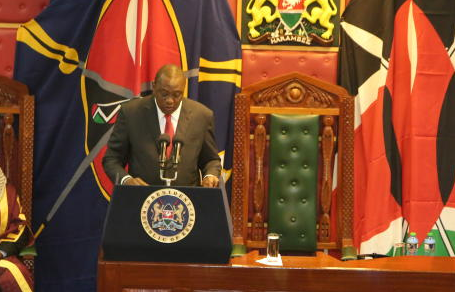
To say that the president’s State of the Nation address was a disappointment is an understatement. Many had been demanding, and expected blood. Fire several Cabinet Secretaries. Better still, dissolve the whole Cabinet. Hurl several Cabinet Secretaries before Magistrate Ogoti for the Sh100 million bail. Name corrupt governors and demand they go home. If only governing was so simple. We so easily forget that about ten years ago, we chose the route of a constitutional democracy. We passed a Constitution that evolved us from a government primarily by a man’s whims, however well-intentioned they may be, to a government run by the rule of law.
After many years of experience with imperial presidents who hardly cared about our welfare, we opted for a checked and accountable presidency. In our hearts however, we long for a strong man who can take away all our problems with the wave of a band. That is why we celebrate when people are woken up on Friday night, charged with much pomp on Monday and denied bail. We do not care if a few laws are broken as long as those who have stolen from us are punished. We need to wake up. The choice we made comes at a price.